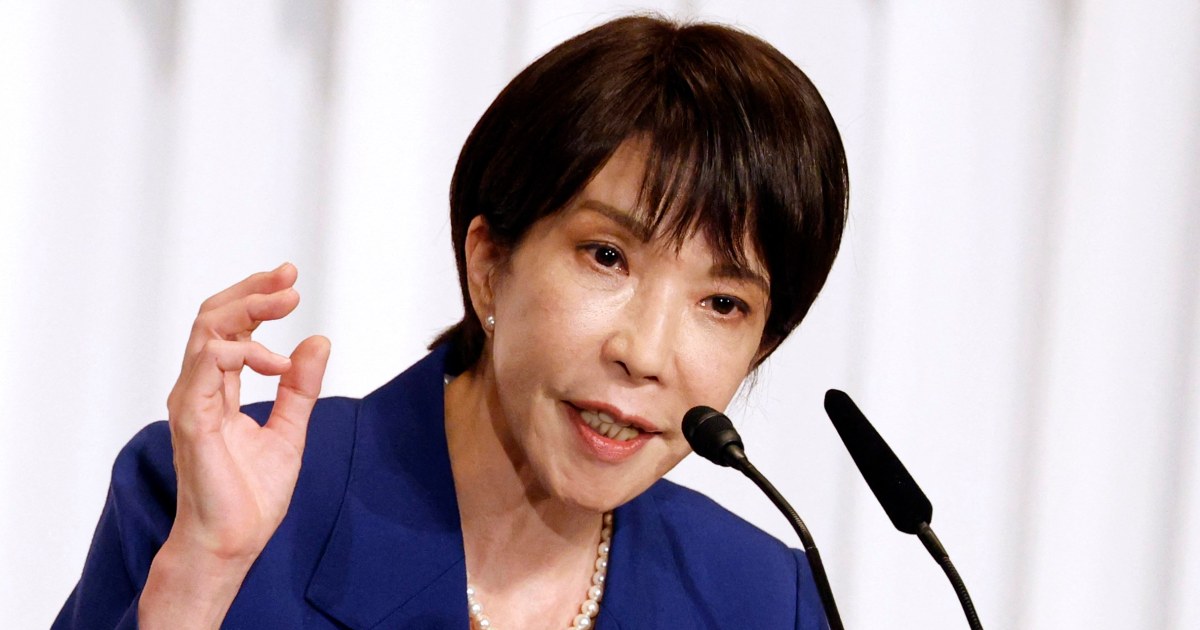Sanae Takaichi Poised to Become Japan's First Female Prime Minister
Sanae Takaichi, a hardline conservative, is on track to become Japan’s first female prime minister after winning the leadership election for the ruling Liberal Democratic Party (LDP). This marks a potential shift to the right for Japan at a time of political instability and rising tensions in the Asia-Pacific region.
Takaichi's Victory and Path to Premiership
Takaichi, a 64-year-old former newscaster and seasoned politician, secured victory on Saturday after defeating four other candidates, including Shinjiro Koizumi, in a runoff vote. This win positions her to succeed Shigeru Ishiba, who resigned after a year in office due to election defeats. While the LDP lost its majority in both houses of parliament, Takaichi is still the most likely candidate to become the head of state.
In her victory speech, Takaichi vowed to "work, work and work" to revitalize the LDP and address public anxieties. She emphasized the importance of transforming the party into "a more energetic and bright party, a party that can turn people’s anxieties into hope."
Who is Sanae Takaichi?
Takaichi is considered an anomaly in Japanese politics, traditionally dominated by male politicians. She is the first elected official in her family. She previously served as Economic Security Minister from 2022 to 2024. Often compared to Margaret Thatcher, she's known for her strong convictions.
However, Takaichi is not known as an advocate for gender equality. She opposes allowing married couples to have different last names and disapproves of allowing members of the imperial family’s maternal line to ascend the throne. Gender equality advocates have expressed concern that her victory may not significantly improve the situation for Japanese women.
Policy Platforms and Potential Challenges
Takaichi is known for her hard-line stances on national security, defense, and immigration. She is a protégé of the late Shinzo Abe. Her nationalist views could potentially complicate relations with China and South Korea.
- She believes Japan does not need to apologize further for its wartime past.
- She wants to strengthen restrictions on allowing foreigners into Japan.
- Her economic policies include eliminating the provisional gas tax and introducing tax credits with cash benefits.
Implications for the U.S. Alliance
One major point of contention could be the trade agreement between the Trump and Ishiba administrations. Takaichi has suggested she may want to reopen talks on the tariff deal and wants Japan to have stronger defensive capabilities. She has also pushed for a debate over allowing the use of U.S. nuclear weapons in Japan in the case of an emergency.
Experts warn that if Takaichi veers too far to the right on China or South Korea, it could isolate Japan. Tetsuo Kotani, an expert on U.S.-Japan relations at Meikai University, stated, “Japan could end up isolated, relations with South Korea could worsen, and if Japan enters a confrontational stance with China while the U.S. steps back from Asia, that would be extremely challenging.”
Japan's Current Political Instability
Japan has been experiencing political instability due to economic dissatisfaction and a political scandal involving the LDP. Public trust in the LDP has declined due to a political fundraising scandal. These factors led to Ishiba's resignation and the LDP's loss of its majority in the lower house of parliament.
Challenges Ahead
If confirmed as prime minister, Takaichi's key challenges include uniting the LDP, regaining public support, and addressing economic issues. Her right-wing policies may appeal to some voters but could alienate others. She will need to navigate complex geopolitical relationships, particularly with China, South Korea, and the United States.
| Key Issue | Takaichi's Stance |
|---|---|
| Gender Equality | Opposes allowing married couples to use separate surnames; against allowing maternal line of imperial family to ascend the throne. |
| National Security | Advocates for stronger defense capabilities, possible use of U.S. nuclear weapons in an emergency. |
| China Relations | China hawk; potentially seeks "quasi-military alliance" with Taiwan. |
| Economic Policy | Supports aggressive monetary easing and fiscal spending ("Abenomics"). |
Sanae Takaichi's leadership marks a significant moment for Japan. The coming months will reveal how she addresses these challenges and shapes Japan's future on the global stage.
 Visit the website
Visit the website






